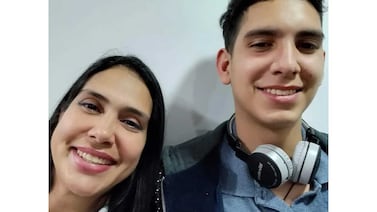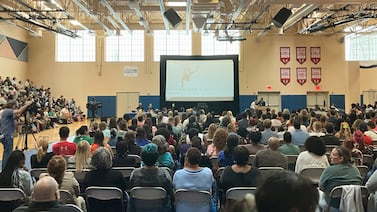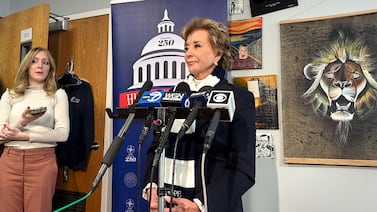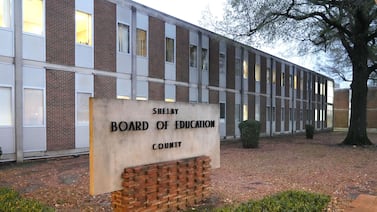Sign up for Chalkbeat Indiana’s free daily newsletter to keep up with Indianapolis Public Schools, Marion County’s township districts, and statewide education news.
Over 50 Indianapolis charter and private schools have applied to share transportation and school building resources as part of a new pilot program.
The application submitted to the Indiana Department of Education is from TogetherEd, an Indianapolis-based nonprofit that assists charter schools. It lists a collective of 28 independent charter schools and 22 charters affiliated with the IPS Innovation Network as applicants, as well as the Oak Academy’s three private school campuses.
The pilot is supposed to help charters tackle some of their biggest challenges as they have grown in Indianapolis. As smaller entities, they have limited purchasing power for services such as transportation. And with historically limited access to property tax funding, they have frequently struggled to acquire and maintain building space.
Schools and school districts can opt into the pilot, which is statewide, to create independent boards that oversee school facilities and transportation across all pilot participants.
As part of the facility pilot, the schools would explore creating a catalog that tracks all available facilities across school partners, according to TogetherEd’s application. They would also consider coordinating the procurement of services and equipment — such as furniture, HVAC systems, and lab supplies — on behalf of multiple schools for potential cost savings through shared purchasing power.
Meanwhile, schools would consider pooling rides across multiple schools or collaborating on transportation to specialized learning experiences such as career and technical education, the application states. They would also look at improving transportation access for students experiencing homelessness.
Lawmakers created the pilot earlier this year, after a confrontational legislative session in which Republican legislators called for more efficiency in the Indianapolis school environment where there has been intense competition between Indianapolis Public Schools, charters, and private schools that accept state-funded vouchers.
Andy Seibert of TogetherEd said the application is not a step-by-step blueprint, but rather an opportunity for schools to collect data and an understanding of existing facility and transportation assets and challenges.
“Part of what we know is going to be true is really going to work to foster ongoing collaborative conversations with schools and partners,” Seibert said. “And the beautiful thing of the pilot is that we can be responsive.”
Seibert said TogetherEd hopes to hear from the state regarding its application in October.
One of the schools listed as a charter on TogetherEd’s application, the Cold Spring School, applied to become a charter, but IPS rejected the move in June. Cold Spring is part of the Innovation Network.
Amelia Pak-Harvey covers Indianapolis and Lawrence Township schools for Chalkbeat Indiana. Contact Amelia at apak-harvey@chalkbeat.org.





